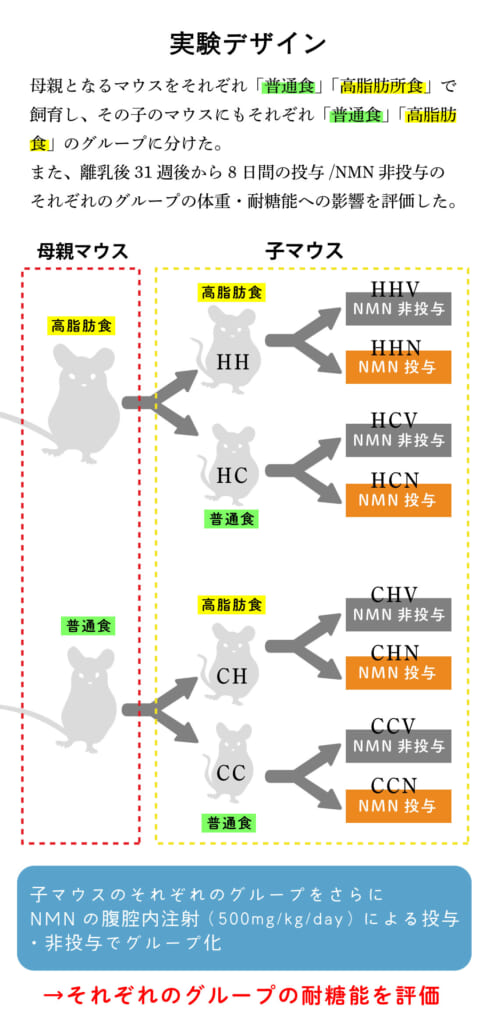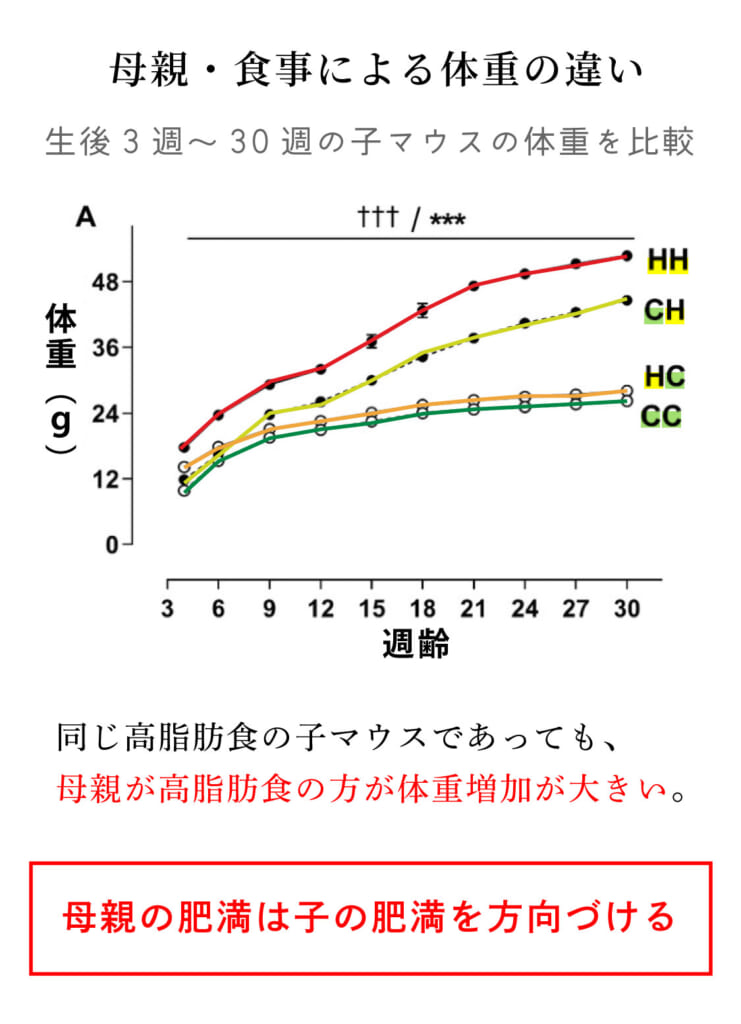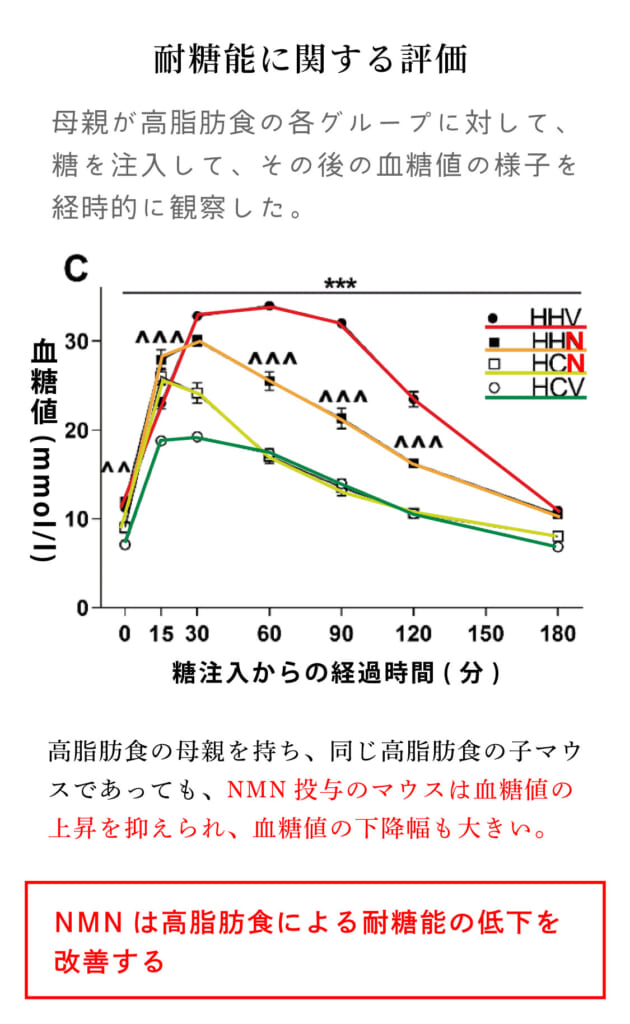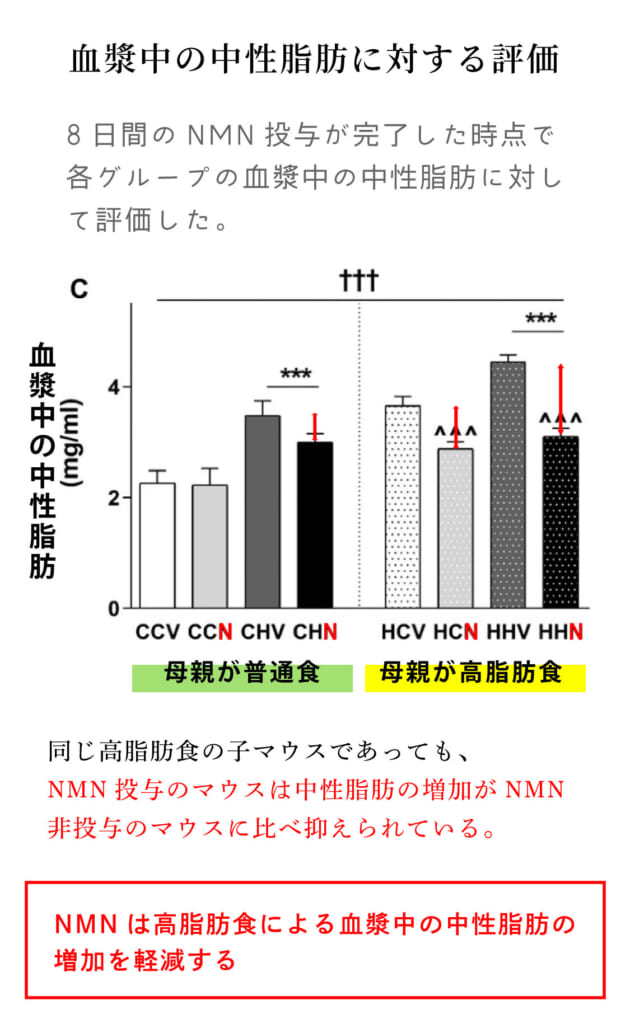NMN alleviates metabolic dysfunction in children resulting from maternal obesity and high-fat
 【Is susceptibility to obesity hereditary!?】
【Is susceptibility to obesity hereditary!?】
It is well known that genetic factors (family history) are involved in childhood obesity, with about 70% of children becoming obese if both parents are obese, and about 40-50% becoming obese even if one parent is obese.
A study on obesity conducted by the University of Pennsylvania in the United States, which targeted identical twins and fraternal twins, found that the concordance rate of obesity was twice as high in identical twins as in fraternal twins. This result suggests that obesity may be one of the “genetic diseases.” Additionally, childhood obesity has been reported to increase the likelihood of developing metabolic disorders later in life.
※https://pubmed.ncbi.nlm.nih.gov/3712713/
【The relationship between maternal obesity and the risk of metabolic disorders in children.】
Research on obesity using mice has shown that maternal obesity increases the fat percentage and liver triglycerides in offspring mice, while decreasing their glucose tolerance, liver NAD+ levels, and citrate synthase enzyme activity. These effects are said to contribute to the risk of metabolic disorders in offspring, such as childhood obesity and non-alcoholic fatty liver disease. Furthermore, it is known that these effects worsen further when post-weaning offspring mice consume a high-fat diet.
【Experimental Content】
It has been found that maternal obesity can influence the metabolic function of offspring. Additionally, it has been reported that NMN may have the potential to alleviate metabolic dysfunction in offspring.
This study investigated whether short-term administration of NMN to offspring could improve metabolic dysfunction induced by maternal and offspring high-fat diet (HFD) intake.
In the experiment, one group of pregnant mice was given a normal diet while another group was given a high-fat diet (HFD). Offspring from each group were then divided into four groups: those fed a normal diet and those fed a high-fat diet (HFD), resulting in a total of four groups. Furthermore, at 31 weeks postpartum, the four groups were further divided into teams receiving NMN injections for 8 days and teams not receiving injections, and observed for the last 3 weeks before slaughter. Additionally, body weight and glucose tolerance were tested at weeks 10, 29, and 32 postpartum to measure the short-term and long-term effects of post-weaning high-fat diet (HFD) and the efficacy of NMN treatment.

【The Results of the Experiment】
■Children of mothers on a high-fat diet experience significant weight gain.

Comparing the weights of mice from birth to 30 weeks old, it was found that mice fed a high-fat diet (HFD) exhibited greater weight gain than mice fed a regular diet. Furthermore, among mice fed the same high-fat diet (HFD), those born to mothers raised on the high-fat diet showed significantly more weight gain than those born to mothers raised on a regular diet.
It can be concluded that maternal diet significantly influences the weight of offspring during postnatal development.
■Assessment of Neutral Lipid Reduction and Glucose Tolerance through NMN Administration in Offspring


At the 34th week postnatal, measurements of plasma insulin and neutral lipids, as well as hepatic neutral lipids and mitochondrial metabolism-related genes, were taken in offspring mice. It was revealed that just 8 days of NMN treatment significantly improved glucose intolerance induced by maternal high-fat diet (HFD) and post-weaning high-fat diet (HFD) in offspring mice.
Furthermore, hepatic lipid accumulation in offspring born to mothers raised on a high-fat diet (HFD) was reduced by NMN treatment, with a 50% decrease in mice fed a regular diet and a 23% decrease in mice fed a high-fat diet (HFD).
 【Is NMN the Key to Treating Metabolic Disorders in Children?】
【Is NMN the Key to Treating Metabolic Disorders in Children?】
These findings suggest that short-term administration of NMN may be effective in treating metabolic disorders in children caused by maternal and post-weaning overnutrition. This implies that while childhood obesity may have strong genetic components, there is potential for improvement through NMN administration.
Therefore, NMN is expected to have effects in breaking the cycle of genetic predisposition to obesity and improving metabolism. Of course, it is crucial for both the mother and child to avoid high-fat diets to prevent childhood obesity and metabolic disorders in the first place. However, in the event of their occurrence, initiating NMN treatment as early as possible seems to be a prudent approach.
【Reference】
Reference Paper: 【Administration of Nicotinamide Mononucleotide (NMN) Reduces Metabolic Impairment in Male Mouse Offspring from Obese Mothers】
Journal Name/Cells. 2020 Mar 25;9(4):791
Paper URL: Click here to view (PubMed)
